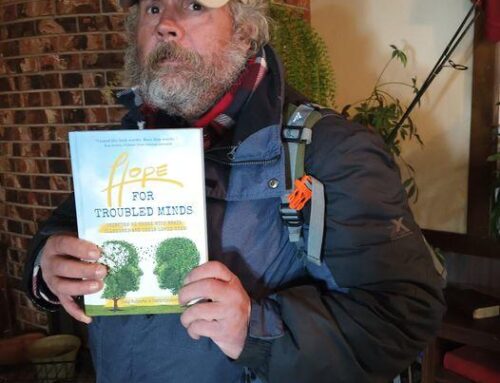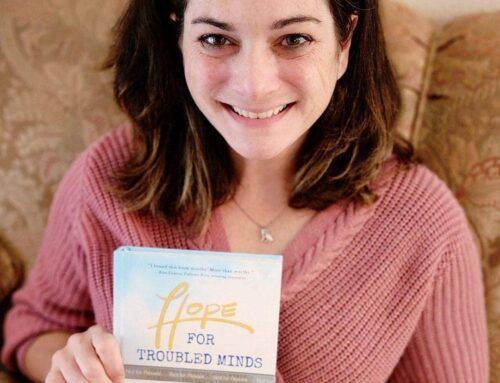Attitudes toward military conflict vary widely within the Christian community.
Some are strict Pacifists. They take literally the words of Jesus, “Thou shalt not kill.,” even in the context of self-defense. I have heard some say, “I will die for my faith, but I won’t kill for it.”
Others are militaristic. They believe it is right, even necessary, to declare and carry out war when there is a just cause, such as fighting “for democracy,” or “against terror.”
Many find themselves somewhere in between, searching for divine answers in an ungodly world.
Wherever we find ourselves in the spectrum of beliefs about war, our faithful response is to recognize and honor those who lay down their lives for a cause greater than themselves.
Sam Stone came home,
To the wife and family
After serving in the conflict overseas.
And the time that he served,
Had shattered all his nerves,
And left a little shrapnel in his knees.
While some lose their physical lives in battle, many others lose nearly all semblance of the selves they once were due to such mental health crises as Post-Traumatic Stress Disorders (PTSD)
But the morphine eased the pain,
And the grass grew round his brain,
And gave him all the confidence he lacked,
With a purple heart and a monkey on his back.
*While PTSD is not exclusively limited to returning veterans, it is exceedingly prevalent among them. According to the Department of Veterans Affairs, the lifetime prevalence of PTSD among adult Americans is 6.8%; while among veterans, those numbers skyrocket to estimated lifetime prevalence of PTSD of 30.9% for men and 26.9% for women (“Epidemiology of PTSD,”.)
There’s a hole in daddy’s arm where all the money goes,
Jesus Christ died for nothin I suppose.
Little pitchers have big ears,
Don’t stop to count the years,
Sweet songs never last too long on broken radios.
According to the Mayo Clinic, symptoms of the disorder include recurring nightmares, flashbacks, depression, feelings of isolation and detachment, irritability and violent outbursts, headache, insomnia, intrusive thoughts, hypervigilance and hypersensitivity, and feelings of guilt. These devastating symptoms can begin within a few weeks of the initial trauma, but may also manifest themselves years later. Subjects with PTSD will often avoid thinking or talking about the traumatic event, and may become detached from family and friends; the support system they need the most. Though most associated with war-time service, the illness is also seen in the civilian population, with similar incapacitating symptoms.
Sam Stone’s welcome home
Didn’t last too long.
He went to work when he’d spent his last dime
And soon he took to stealing
When he got that empty feeling
For a hundred dollar habit without overtime.
And the gold roared through his veins
Like a thousand railroad trains,
And eased his mind in the hours that he chose,
While the kids ran around wearin’ other peoples’ clothes…
Treatment for PTSD includes medication, psychotherapy, and support groups. As with other forms of mental illness, medical intervention is not an exact science. One budding hope for treatment lies with Animal-Assisted Therapy (AAT). This is gaining support, in various arenas,
“After years of downplaying the psychological damage that war can do, the government is finally acknowledging the full cost of doing war on the individual soldier, as well as those left behind, but there is so much more to do. Supporters of increasing the government support for AAT for veterans with PTSD were thrilled with legislation authored by Rep. Ron DeSantis that would allocate nearly $10 million dollars to a five-year pilot program pairing veterans suffering from PTSD with a service dog. The act, officially called H.R. 4764, has been labeled the Puppies Assisting Wounded Servicemember Act. says sponsor DeSantis, “The PAWS Act is a simple bill that could have a dramatic – and potentially life-saving – effect on the lives of many. As we face an epidemic of veteran suicides, we must make sure that all of our returning service members are honored and taken care of, no matter the wounds they bear.”
Sam Stone was alone
When he popped his last balloon,
Climbing walls while sitting in a chair.
Well, he played his last request,
While the room smelled just like death,
With an overdose hovering in the air.
But life had lost it’s fun,
There was nothing to be done,
But trade his house that he bought on the GI bill,
For a flag-draped casket on a local hero’s hill.
If you or someone you know has suicidal thoughts, get help right away through one or more of these resources:
- Reach out to a close friend or loved one.
- Contact a minister, a spiritual leader or someone in your faith community.
- Call a suicide hotline number — in the United States, call the National Suicide Prevention Lifeline at 1-800-273-TALK (1-800-273-8255) to reach a trained counselor. Use that same number and press 1 to reach the Veterans Crisis Line.
- Make an appointment with your doctor or a mental health professional.
- much thanks to my friend Julie Hughes for the research and some wording of this piece.
Discover more from Delight in Disorder
Subscribe to get the latest posts sent to your email.








Thank you for this important post. I was inspired to write my book about having a service dog for a hidden disability when I read Luis Carlos Montalvan’s Until Tuesday. He was an Iraq war veteran and best-selling author who toured the country with his service dog, Tuesday, as an advocate for soldiers with post-traumatic stress disorder. Sadly, he committed suicide last year. He was only 43. Before learning about him I never knew that I had anything in common with war veterans.
Sorry to hear of Mr. Montalvan’s death, but glad he planted a seed of inspiration in you. Tragically, there are many wounded warriors out there. I taught a writing class where an Iraqi veteran wrote a true story about an IED that went off. He was the only survivor. Sad.
And I have always loved this sing by John Prine!
Prine is my muse. I just pre-ordered his autobiography,Beyond Words to review for a webzine.
Wow, Tony, coupling your words with those of John Prine gave me chills this morning. I pray Rep. DeSantis’ bill passes with the support and swiftness with which it is needed. And thank you for bringing this to our attention.
Thank you for your thoughtful words.
I have my friend, Julie Hughes to thank for the information on the PAWS Act.